- Home
- Gordon Korman
Flashpoint Page 4
Flashpoint Read online
Page 4
“London never gets this hot,” moaned Ian. “At least, not since the great fire of 1666.”
“Forget the heat.” Jake was beside himself. “We’re wasting eight hours of Amy’s life! Surely even the bus would be faster than this!”
Amy cast a jaundiced eye in his direction. She understood his anguish — he was a powerless spectator as the effects of the serum ravaged her. Still, she needed him to stop trying to protect her. “It’s better this way,” she said stoutly. “Airports and bus stations can be watched, but no one will be expecting us to come crawling up out of the swamp.”
From his place behind the wheel, Hamilton looked grateful for her support. He knew he was being blamed for the general discomfort.
Amy was putting a brave face on it, but she was suffering more than anybody. The arm and leg tremors were becoming harder and harder to hide. Scarier still, the jungle heat seemed to accelerate her hallucinations. At one point, she flattened herself to the deck to avoid a diving tropical bird that wasn’t there. How could she explain that to Jake and Dan, who both rarely took their eyes off her?
They were too hot to enjoy the sights — picturesque fishing villages of ingeniously devised bamboo dwellings along the river. Heavy sedimentation gave the water a texture that resembled woven fabric, stretched out for miles before their craft. Giant catfish broke the surface before disappearing again. Water buffalo watched them pass with calm interest, lowing among themselves as if discussing the strange newcomers.
“No autographs, yo,” Jonah mumbled at them in a sleepy haze.
Atticus, the linguistic genius, had a working knowledge of Khmer. But it turned out to be ancient Khmer, so all he got from the fishermen they encountered were blank stares. Jake tried calling out the word for snake and waving fistfuls of US dollars and Cambodian riels. The locals looked like they wanted to take the money, but they couldn’t supply the snakes.
Beyond the village of Kampong Chhnang, the waterway became wider and deeper, and they were able to increase speed. After six hours of near-total sameness, the scenery began to change dramatically. The river widened into a vast lake, glassy calm, rimmed with fishing communities built out into the water on the narrowest of land spits.
“This is the Tonle Sap,” Atticus explained. “It really is a Great Lake!”
“It’s beautiful!” Amy exclaimed. They seemed to be sailing into a gigantic liquid mirror, with the clouds and sky perfectly replicated across the placid surface. “And to think that half the country depends on this fishing ground for most of its protein.”
They made great time crossing the broad expanse of the lake before slowing down again to navigate the Siem Reap River, a narrow tributary that led to their destination. Once again, they were crawling along a narrow stream surrounded by jungle.
They passed a few more ramshackle dwellings, and then Jonah pointed. “Check it out — the houses around here are all made of Popsicle sticks. So how come that one up ahead looks like Malibu?”
They all craned their necks to stare. Around the bend was a California-esque luxury home. Beyond that was one built in the Mississippi River style. All variety of boats were tied up at docks along the waterfront — not just homemade fishing dugouts, but imported pleasure craft.
“Suburbs,” Jake concluded. “That means we’re close to a city.”
Soon the thick jungle growth gave way to landscaping, and the buildings of Siem Reap came into view. It was not a large metropolis with skyscrapers and the smokestacks of heavy industry. But compared with the primitive villages they had passed on the river, it was modern and inviting.
There was no formal marina, so Hamilton skillfully moored the Kaoh Kong to a piling beside several other boats.
“Solid ground,” Ian said worshipfully as he stepped off the dock onto the grassy riverbank. “I never thought I’d stand on it again.”
Jonah was equally appreciative. “Air-conditioning! Showers! I’ve got monster stage sweat without the stage!”
“If you don’t like my rent-a-boat, next time you can swim along beside it,” Hamilton commented, his beefy arms akimbo. “I’m sure the catfish will appreciate the company.”
Dan took charge. “Siem Reap is the closest city to Angkor, so a lot of tourists come here. Let’s pick the best hotel in town and book a whole floor of suites!”
“That’s not how you keep a low profile,” Amy lectured. “We want a place where Galt would never look for us.”
“Understood,” Ian acknowledged. “In the interest of safety, we must accept four stars instead of five.”
“How about no stars,” Amy suggested. “A guesthouse run by an old lady who doesn’t talk about her guests.”
“Fine,” sighed Ian. “So long as it provides plush bathrobes and fuzzy slippers.”
Jake laughed in his face. “Brace yourself, Kabra. Get ready to see how the other half lives.”
Chapter 6
The hotel was called Jayavarman — Sleep Here, named for a famous line of ancient Khmer kings. There were no plush bathrobes and fuzzy slippers, and no need for them. There was also no pool and no air-conditioning, so it was far too hot for extra clothing.
Atticus described it as “a bed and breakfast minus the breakfast and minus the beds.” They slept on rush mats on the bamboo floor. Every time somebody rolled over, the sound was like a vast army of ants marching in unison. There was little furniture and no TV.
But it was clean, spacious, and relatively bug-free, thanks to the mosquito netting just about everywhere. Better still, the owner, Mrs. Bopha, spoke no language known to humankind or even to Atticus. She couldn’t betray the Cahills’ location even if Galt Pierce found her and interrogated her personally.
“It’s perfect,” declared Amy. “The whole world thinks we’re spoiled rich kids. This is the last place anyone would look for us.”
“Nobody would look for us in the sewer, either,” Dan pointed out sourly. “That doesn’t mean we should start hanging out there.”
“Look at this.” Ian sat cross-legged on his sleeping mat, peering at the computer in perplexity. “Whatever Pony was tracking, it’s here in Siem Reap.” He turned the screen around so they could clearly see the pulsating beacon moving through the streets.
“That’s not too far from here,” Dan observed. “Maybe we should check it out.”
“Not so fast,” Jake jumped in. “What if it’s Galt and Cara?”
The door burst open and in staggered Hamilton and Jonah, dripping wet in their bathing suits, snapping towels at each other, sending a spray all around the room.
Ian slammed the laptop shut. “Savages! If we ruin this computer, then where will we be? Up the Tonle Sap without a paddle, that’s where!”
“That shower is awesome, yo!” Jonah cackled.
“It’s an outdoor stall with a bucket of water on a swivel,” Hamilton hiccupped. “When you pull the rope, it dumps all over you!”
“I was thinking of putting in a wave pool at my crib in LA,” Jonah added. “But maybe I’ll just get one of these. I’ll save a fortune! Remind me to text a picture to my architect.”
Dan and Atticus exchanged a meaningful glance. Instantly, they were digging swimsuits out of their backpacks and sprinting for the door.
“Should we stop them?” Jake asked Amy. “We really need to get to work.”
“Let them have some fun,” Amy said with a sad smile. “The trouble with the whole Cahill thing is that it steals your childhood.”
And some of us might not stay alive long enough to become adults.
Twenty-seven miles east of the rockbound coast of Maine, a true jewel of New England rose from the waves. Originally known as Shattuck’s Folly, the island had been renamed Pierce Landing by the new owner, J. Rutherford Pierce. He’d wanted to call it Pierceland, but his political team had advised against it. It would appear un-American, they said, to set u
p what sounded like a private country right on the doorstep of the United States.
Of course, if Rutherford has his way, the entire USA and the rest of the world, too, will be Pierceland soon enough, reflected Debi Ann Pierce as the cameras from 60 Minutes rolled.
Rutherford revealed none of this to the reporter, of course. Technically, he wasn’t even a candidate for president yet.
“Well, Steve,” he said smoothly, “I’m not ready to talk about my future at the moment. But the whole country is invited to Pierce Landing on May fifth for my All-American Clambake. That’s when I’ll be unveiling my plans.” He chuckled. “I wish I could host every single citizen right here on the island. But that would be a tight squeeze, even for this big old place. So I urge everybody to watch us on TV. We’re going to be doing great things together, America and I, because this land is our land. . . .”
Well behind the cameras, in a small sitting area, Debi Ann sewed a button nose on one of her handcrafted teddy bears. Another interview, she thought with a sigh. It was up to three a day now. She could only imagine how many there would be after her husband’s big announcement. Once he was officially the Patriotist candidate for president, his schedule would become even more frenetic, and he would have no time at all for her and the kids. She had to accept this as the fate of the wife of a great statesman.
She snipped the last thread, stuck the needle in her pincushion, and sat back to admire her handiwork. There was a timeless quality to her teddy bears. They differed very little from the very first ones, created during the time of Teddy Roosevelt. It was thrilling to consider that she and her family might soon be living in the same White House once home to the great man himself.
She got up to find a place for the new bear in her breakfront cabinet. She frowned. It was quite full already. Rutherford was so busy, and Galt and Cara had been traveling as well. That had left Debi Ann alone a lot — and her teddy bear production had increased.
As she began to shift her creations to free up space, a leather-bound book slipped out from behind a black bear and fell to the floor at her feet.
What was this? She picked it up, noting its yellowed pages and musty smell. The inside cover read:
Olivia Cahill! Debi Ann experienced a shiver of excitement at the enormity of this discovery. Olivia was the matriarch of the entire Cahill family! Wife of Gideon! Mother of Luke, Katherine, Thomas, Jane, and Madeleine!
Debi Ann’s family — the Starlings — were part of the brilliant Ekaterina branch, descended from Katherine. How had this treasure of Cahill history come to be in her cabinet, hidden among her bears? Only one person could have put it there — Rutherford. He wasn’t a Cahill. Why would he have such an item?
She began to flip through the brittle pages, unable to make sense of more than a word or two. There were Post-it notes here and there, and those certainly hadn’t come from 1499. They were mostly questions, written in Rutherford’s unmistakable bold hand: Take to cryptographer . . . Meaning behind poem? . . . Double-check locations . . .
And the one that made her heart beat a little faster: Connection to Hope?
Hope Cahill, daughter of the legendary Grace. The next thought made her flinch, even after all these years. Rutherford had been madly in love with Hope Cahill. He had pursued her with the same fanatical singleness of purpose with which he pursued everything else — including the presidency. Debi Ann knew she’d been second choice, and her husband had only turned to her after Hope had married Arthur Trent. If Rutherford couldn’t have the Cahill he wanted, then he’d take the Cahill who was available.
Tears stung her eyes. After all these years and two beautiful children — and with Hope long gone — nothing had changed. When Rutherford had found this Cahill heirloom, his first thought had been not of his own wife, but of Hope.
She was competing with a dead woman. And losing.
Rutherford had always been ambitious, but ever since the presidency had appeared on his radar screen, his obsession with achieving his goals had swelled to the point where there was no room for anything else in his life.
Debi Ann had once believed that his wife and children were immune to this, that they would always retain a special place in Rutherford’s heart. Now she suspected they were just three more pawns on the vast, complex chessboard of his Grand Plan.
Pawns that could be sacrificed.
Chapter 7
The Kaoh Kong bobbed by the pylon in the Siem Reap River, exactly where they’d left it.
Dan was amazed. “The King Kong is still here. I love this town! People are so trustworthy. Look, nobody even stole our fishing nets!”
That day, the search began in earnest for the final antidote ingredient. Amy, Dan, Jake, and Atticus drew snake-fishing duty, while Hamilton and Jonah went off to investigate one of the local crocodile farms. The Tonle Sap water snake had once been the most popular crocodile food in Cambodia. Maybe their quarry was still being used as feed — at least unofficially.
Only Ian was excused from the snake hunt. According to the beacon on the Ponyrific computer, whoever the digital cowboy had been tracking was somewhere in the Angkor region, possibly in pursuit of the very same antidote component. It was Ian’s job to identify exactly who this potential competitor might be.
The winding Siem Reap River took the Kaoh Kong north and east toward the ruins of Angkor, just a few miles beyond the city.
“In actuality,” Atticus lectured as Jake maneuvered the boat away from the shore, “Angkor was not a single city. Each Khmer king built his own capital somewhere in the area, so it’s all pretty spread out.”
Amy was examining a tourist map. “It looks like all these sites are temples. Where did the people live?”
When it came to lost civilizations, Atticus Rosenbloom was never stumped. “All homes, from the lowliest hut to the king’s palace, were built of wood. The only buildings considered important enough to be made out of stone were temples. So they’re the ones that survived.”
“Like the Three Little Pigs,” Dan added wisely. “The straw house and the stick house blew away. But when the big bad wolf came to the brick house —”
“Did the three little pigs ever build anything like that?” Jake interrupted, pointing upriver.
They all turned to stare. Out of the jungle rose five stunning stone towers.
“Angkor Wat,” Atticus breathed reverently.
“Angkor what?” echoed Dan.
Atticus giggled. For a genius who had finished high school in his “spare time” at age eleven, he had a kindergarten sense of humor.
“Captain — weigh Angkor!” Dan added.
Amy shot them an exasperated expression. “Cut it out, you guys.”
“Don’t get mad,” her brother returned. “Where’s your Angkor management?”
Amy’s eyes met Jake’s, and the older teenagers laughed in spite of their dire situation. Atticus was a bona fide genius, and Dan was the leader of the most powerful family in human history, but the two of them could be such a pair of knuckleheads sometimes.
Amy had almost forgotten Jake’s infectious grin, which made his amazing eyes appear even greener.
Atticus’s smiled turned to a look of wonder as he returned his attention to the famed, soaring silhouettes. “Angkor Wat is the largest religious monument in the world,” Atticus was explaining to Dan.
Dan peered at the distant towers. “Which one is it?”
“All of them,” Atticus supplied.
And then Dan saw. What had appeared to be several separate structures turned out to be one enormous whole. The gray sandstone seemed to shimmer in the bright sunlight, giving the vast temple an otherworldly appearance. The word imposing didn’t even come close — especially when he realized that the tiny dots moving on the multitiered galleries were tourists.
“We aren’t even close enough to appreciate how big it really is,” Amy
announced in a hushed tone.
“The towers are designed in the style of lotus blossoms,” Atticus continued. “It’s a major theme in Khmer architecture. Although most temples face east, Angkor Wat faces west. That could be because it’s also a funerary monument.”
As the Kaoh Kong took them upriver, the lotus towers of Angkor Wat seemed to soar into the sky, the central spire reaching a height well over two hundred feet. At one point, through a clearing in the tree cover, they could see the outer wall and even catch a glimpse of sparkling water.
Dan was confused. “Is it on an island?”
“That’s the moat,” Atticus explained. “The ancient Angkorians were masters at dredging waterways. A lot of the major temples have them.”
They had not fully passed Angkor Wat when other, smaller temples began to rise out of the jungle, providing a sense of the size and complexity of the great civilization that had once existed here.
“Okay, I get it,” Dan said finally. “Anybody who could build all this would have been smart enough to have big-time knowledge to pass on. It makes sense that a key ingredient could come from here.”
Amy pulled up the fishing nets and removed several twigs and a Coke can with the logo written in Khmer. “The ancient Angkorians had something we don’t — a whole river full of Tonle Sap water snakes.”
As she spoke, the tallest tower of Angkor Wat morphed into a gigantic serpent and hissed at her, forked tongue waving.
Part of her understood it was only a hallucination.
But she ducked anyway.
Chapter 8
The Rith Map Crocodile Farm was located halfway between Siem Reap and Tonle Sap Lake. It was a ten-minute drive by tuk-tuk, the three-wheeled motorized rickshaw taxis popular in town. That included a short side trip to drop off a 106-year-old woman, whose live chicken kept pecking Hamilton’s muscular arm.

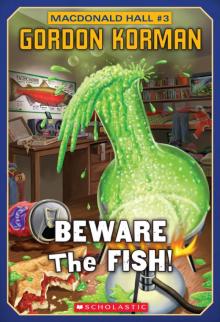 Beware the Fisj
Beware the Fisj Slacker
Slacker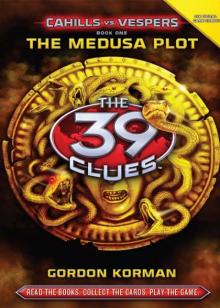 The Medusa Plot
The Medusa Plot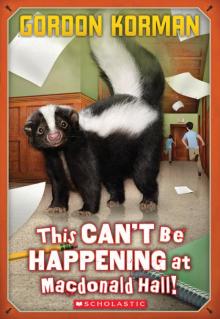 This Can't Be Happening at MacDonald Hall!
This Can't Be Happening at MacDonald Hall! The War With Mr. Wizzle
The War With Mr. Wizzle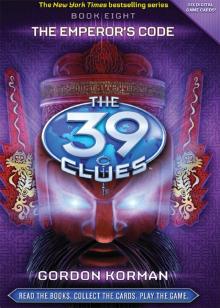 The Emperor's Code
The Emperor's Code Zoobreak
Zoobreak The Danger
The Danger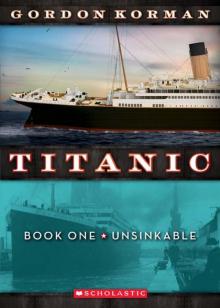 Unsinkable
Unsinkable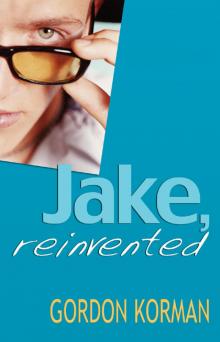 Jake, Reinvented
Jake, Reinvented No More Dead Dogs
No More Dead Dogs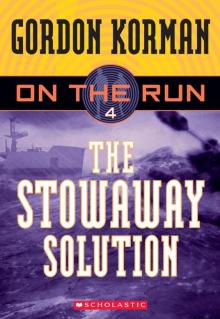 The Stowaway Solution
The Stowaway Solution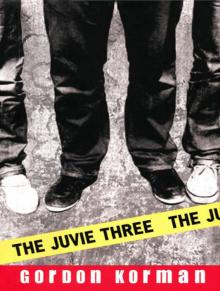 The Juvie Three
The Juvie Three The Climb
The Climb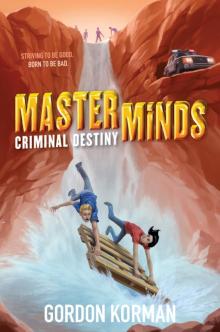 Criminal Destiny
Criminal Destiny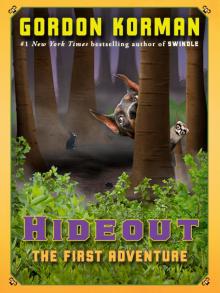 Hideout: The First Adventure
Hideout: The First Adventure Flashpoint
Flashpoint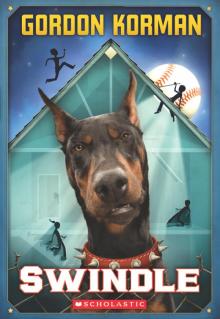 Swindle
Swindle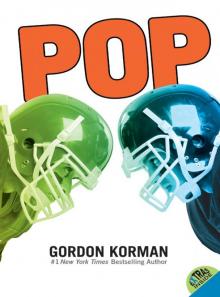 Pop
Pop The Rescue
The Rescue Memory Maze
Memory Maze The Sixth Grade Nickname Game
The Sixth Grade Nickname Game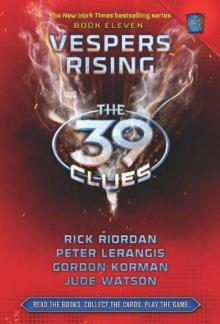 Vespers Rising
Vespers Rising Collision Course
Collision Course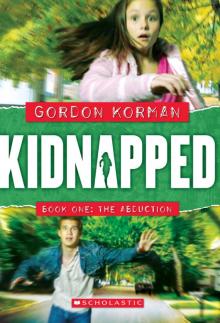 The Abduction
The Abduction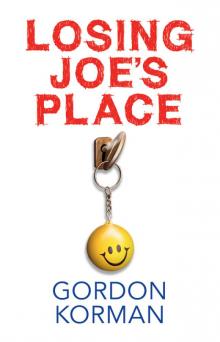 Losing Joe's Place
Losing Joe's Place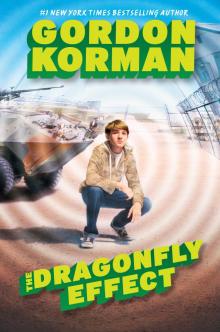 The Dragonfly Effect
The Dragonfly Effect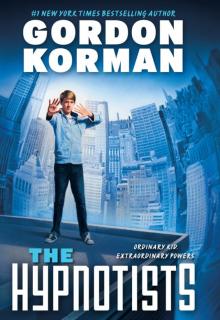 The Hypnotists
The Hypnotists Survival
Survival Lights, Camera, DISASTER!
Lights, Camera, DISASTER! Payback
Payback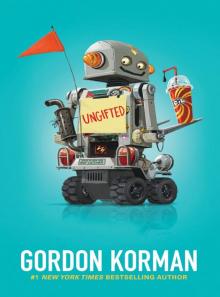 Ungifted
Ungifted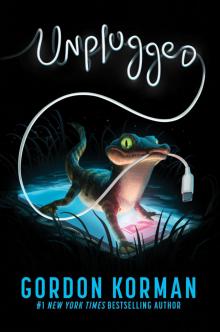 Unplugged
Unplugged Framed
Framed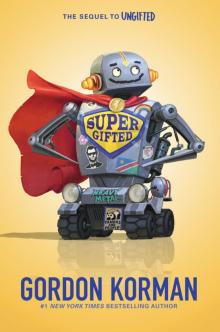 Supergifted
Supergifted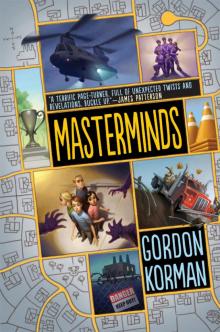 Masterminds
Masterminds Jackpot
Jackpot Don't Care High
Don't Care High The Deep
The Deep Go Jump in the Pool!
Go Jump in the Pool! The Contest
The Contest Public Enemies
Public Enemies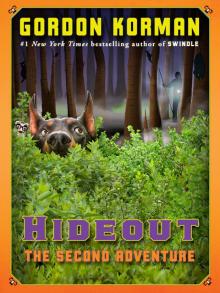 Hideout: The Second Adventure
Hideout: The Second Adventure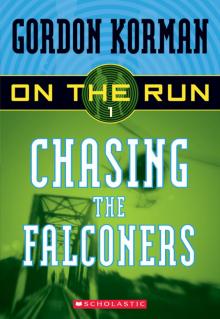 Chasing the Falconers
Chasing the Falconers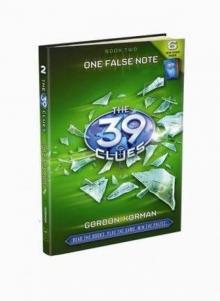 One False Note
One False Note Shipwreck
Shipwreck Jingle
Jingle Unleashed
Unleashed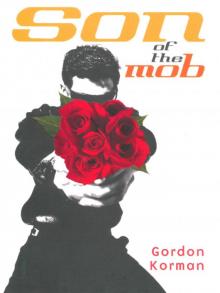 Son of the Mob
Son of the Mob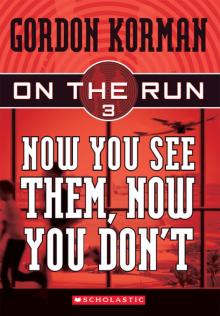 Now You See Them, Now You Don't
Now You See Them, Now You Don't War Stories
War Stories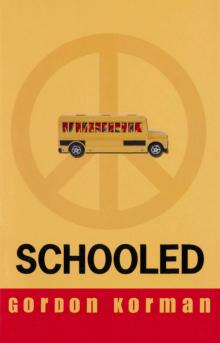 Schooled
Schooled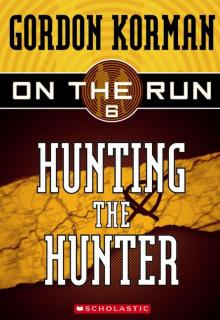 Hunting the Hunter
Hunting the Hunter The Zucchini Warriors
The Zucchini Warriors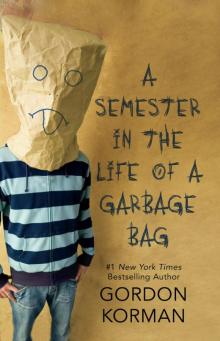 A Semester in the Life of a Garbage Bag
A Semester in the Life of a Garbage Bag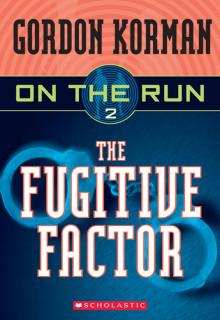 The Fugitive Factor
The Fugitive Factor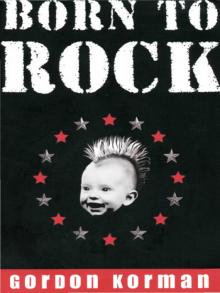 Born to Rock
Born to Rock The Summit
The Summit Showoff
Showoff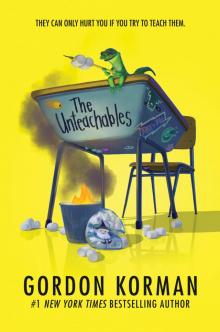 The Unteachables
The Unteachables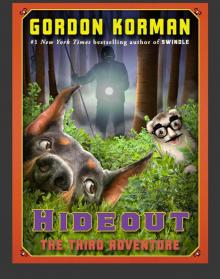 The Third Adventure
The Third Adventure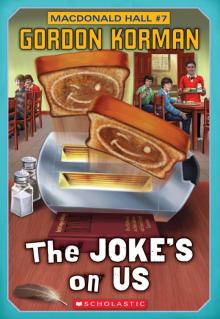 The Joke's on Us
The Joke's on Us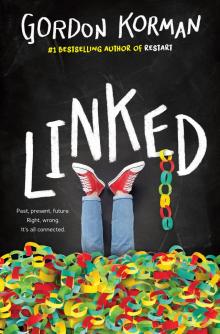 Linked
Linked The Wizzle War
The Wizzle War The 6th Grade Nickname Game
The 6th Grade Nickname Game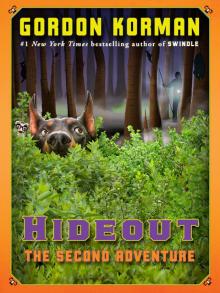 The Second Adventure
The Second Adventure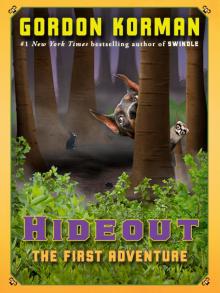 The First Adventure
The First Adventure![39 Clues : Cahills vs. Vespers [01] The Medusa Plot Read online](http://i1.bookreadfree.com/i2/04/10/39_clues_cahills_vs_vespers_01_the_medusa_plot_preview.jpg) 39 Clues : Cahills vs. Vespers [01] The Medusa Plot
39 Clues : Cahills vs. Vespers [01] The Medusa Plot